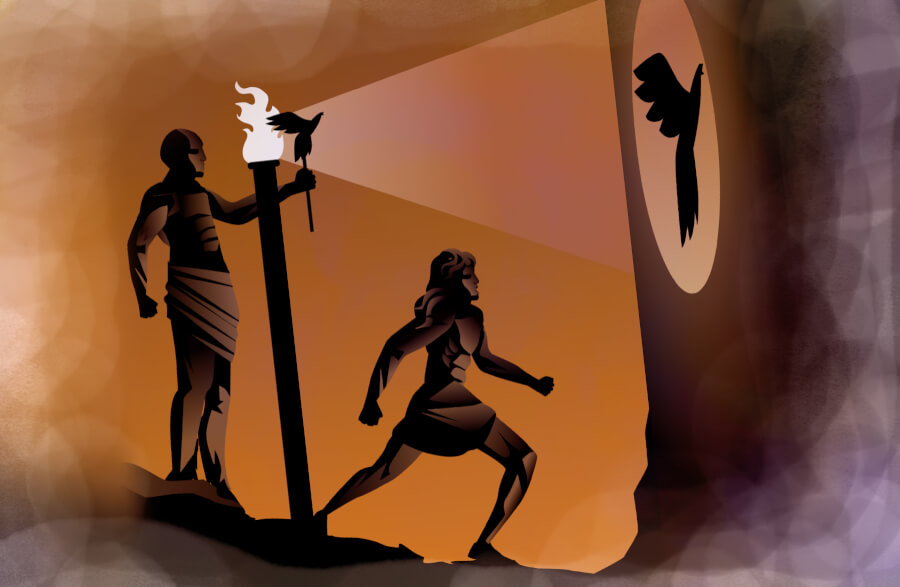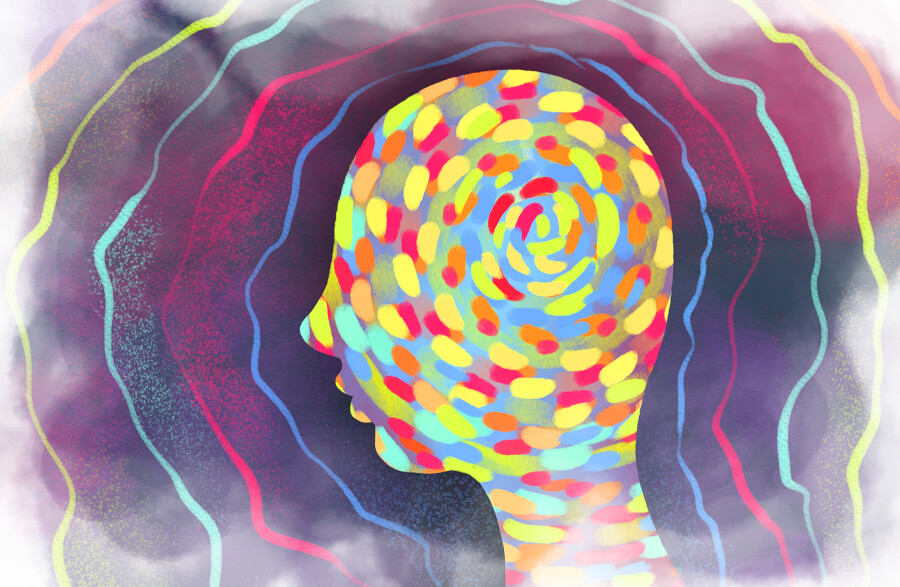The untrained mind keeps up a running commentary, labeling everything, judging everything. Best to ignore that commentary. Don’t argue or resist, just ignore. Deprived of attention and interest, this voice gets quieter and quieter and eventually just shuts up.— Plato, Conversations with Plato
Whenever we encounter some new knowledge or a new belief that is not in our current schema or existing belief system, we may experience what the Swiss Psychologist Jean Piaget terms ‘cognitive dissonance.’
In New Thought this is called “Chemicalization.’ We reject new information as untrue because we are unable to connect with our previous understanding. We may undergo periods of denial, anger, adjustment, and disbelief and may never accept the new knowledge or information. In this case, we stay as we are, maybe stagnate.
But if we can adjust to this new knowledge or information eventually we can rewire our cognition and create new neural pathways and learning occurs.
Metaphysically, when we let go of previous limiting beliefs we undergo the chemicalization experience. This includes dying to our old selves, undergoing the dark night of the soul, or experiencing our own crucifixion before we resurrect ourselves and ascend to a new level of consciousness.
The Allegory of the Cave
Plato’s allegory of the cave originates from the fifth century BC and was presented to compare “the effect of education and the lack of it on our nature”. It is written as a dialogue between Plato’s brother Glaucon and his mentor Socrates.
In the allegory, Socrates describes a group of people who have lived chained to the wall of a cave all their lives, facing a blank wall. The people watch shadows projected on the wall from objects passing in front of a fire behind them and give names to these shadows. The shadows are the prisoners’ reality, but are not accurate representations of the real world.
Metaphysically, when we let go of previous limiting beliefs we undergo the chemicalization experience.
Socrates explains how the philosopher is like a prisoner who is freed from the cave and comes to understand that the shadows on the wall are actually not reality at all. A philosopher aims to understand and perceive the higher levels of reality. However, the other inmates of the cave do not even desire to leave their prison, for they know no better life.
This allegory is a useful way to explain the importance of education for increasing our evolution as humans on this earth, and demonstrates the growth mindset needed for increasing awareness, consciousness, and understanding.
What is the Absolute Realm?
The absolute realm does not change. The relative realm depends on one’s point of view or point of origin. The relative realm is always changing, and we experience in our mind illusions and not the truth of who we really are.
So using Plato’s allegory we can see the nature of relative reality is always in our mind. We create in our minds. When we question and explore, we expand our reality and move out from the darkness into the light.
When we look at something happening in our world, we can observe ourselves as if we are seeing it from the Absolute or Relative point of view.
A philosopher aims to understand and perceive the higher levels of reality.
When we are operating from our conscious mind we are in the NOW, present, aware moment to moment that we are in charge of our reality by the thoughts we create.
If I am present, I am aware of my thoughts shifting from fear to love and I know I can shift the energy of others around me towards positive vibrations by lightening the mood or invoking love or gratitude.
Practical Application
- Eliminate the power of your subconscious mind: Refuse to let fear take over or feed your subconscious with only good, hopeful, and positive statements. See your mind like a garden and weed out your negative thoughts in your mind so as not to strangle your hope and your divinity.
- Forgive and let go: freeing ourselves from attachments and to being subject to the reaction of others. Holding onto thoughts of unforgiveness is like drinking the poison yourself—you only damage yourself. What thoughts of unforgiveness are you still holding onto? Reflect and write down what you need to release. Can you create a ritual or a burning bowl ceremony to rid yourself of these thoughts of unforgiveness towards others? Do this and journal the impact this choice to release and let go has on your life.
- Judge not: When you judge someone else what you say and judge says more about who you are as a person and not the person you are judging. Who or what do you judge? Can you notice your mind when it does this and can you retrain your mind to shift here? Can you journal your daily progress here. Is it easier to do with some people more so than others? Is it easier to do at work or at home? Observe yourself and how your mind wants to criticize and judge.
With awareness and practice, we can shift our consciousness from victimhood to the highest consciousness. Integrating our head, heart, intellect and compassion as a Metaphysician will show us the way towards awakening and growing our spiritual awareness.
If you are ready to become grounded in your personal relationship with the world, I invite you to reflect on your self-limiting beliefs and explore your understanding of the absolute versus relative realm. It is then that you will begin awakening the heart-centered Metaphysician within you.


